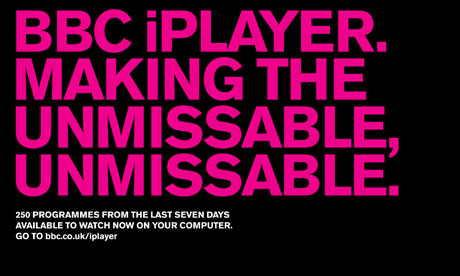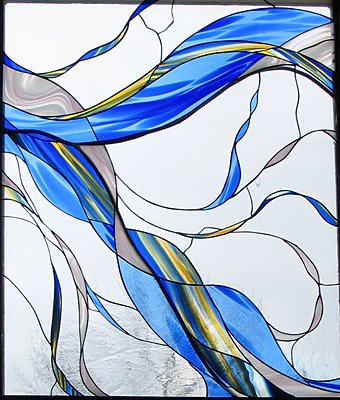The text of a sermon preached today - the first Sunday of Easter. The texts were Acts 2:14a, 22-32; 1 Peter 1:3-9; John 20:19-end
Alleluia: Christ is risen!
He is risen indeed, alleluia!
It seems incredible that it’s almost a decade since the BBC launched a multi-media campaign for iPlayer with the catch-line:
Making the unmissable, unmissable.
No longer do we worry about remembering to record a programme; no longer do we wrestle with video tapes. We can download or restart; watch live or catch up; viewing on flat screens, lap tops or mobile devices.
But making the unmissable, unmissable is more than reliance on technology. We talk to one another, read reviews, pick up on trends - and we try to avoid spoilers.
The latest BBC One trailer captures this in a matter of seconds through a series of conversational exclamations: Really? What? What? Where did you hear that? Really! Believe me! Did I imagine it?
No you didn’t reads the tagline - "new shows are being added every minute".
Making the unmissable, unmissable.
That could be the catch-line for today’s texts too: only we’re not in the realm of digital technology and autonomous viewing habits. Rather we’re in the realm of God’s reconciling love which transforms lives and communities.
Today we hear of locked doors and public proclamations; fears, doubts and words of peace. There are exclamation of really, what and believe me? Some might say, did I imagine it? “No you didn’t” respond Peter and Thomas; “no you didn’t” confirm Mary Magdalene and the Beloved Disciple. The resurrection is being made known every minute.
Their words are shared so that we might believe; but the unmissable is unmissable not only through their testimony but in our lives and worship, fellowship and prayer. Our risen Lord continues to breath peace into our troubled, joyful, curious, courageous and questioning hearts.
Behind locked doors, they are caught between news of an empty tomb and fear of those in authority. Behind locked doors they ponder Mary’s passionate declaration “I have seen the Lord”. Behind locked doors they are held captive by their feelings of grief, shock and exhaustion; by their expectations, disappointments and guilt.
The manner of Jesus’ being present amongst the disciples continues to reveal the self-giving love of God. His presence was unmistakable and undeniable and unmissable. This body bore the marks of nails and wounds. It was him. Resurrection signalled the defeat of suffering and death; their joy declared that love wins.
And into this unmissable moment is breathed peace.
Peace flows from the one who abided in the heart of God.
The peace that took the sting out death, touching places of infidelity and hopelessness.
In our locked and fearful hearts: peace!
When fear, guilt and inadequacy paralyse us: peace!
In the midst of our inconsistencies: peace!
But this is not the end. For the one who breathes peace sends disciples to be peace.
The one who had called them, affirms their call.
The one who had reached out to them, assures them they are loved.
For God so loved the world that he sent his only Son; to forgive and heal, not to condemn.
His Son now sends us in the power of the Spirit to transmit that love and forgiveness.
But Thomas wasn’t there. And perhaps sometimes we, like him, feel that we’ve missed the unmissable. We have seen the Lord, they told him. And perhaps his exclamations of “what?” or “really!” are met by their “believe me”, “believe us”.
No wonder he replies with “unless”: unless I see and touch, I will not believe.
Thomas is still locked in - locked into disappointment or jealously; disbelief or hurt. And he lives with news of the unmissable for a week. He waits with the disciples - talking, eating and praying. Did he notice a change in them? Did their enthusiasm kindle something in them? Were they reaching out to him, being present with him and breathing peace?
The doors remained shut. And Jesus spoke a word of peace.
And he meets Thomas where he is: there is no belittling or rebuke.
Thomas is invited to reach out and to touch; to believe and place his trust.
And his doubts are caught up in worship: my Lord and my God!
His declaration takes us more deeply into the truth of the unmissable. In him two positions are tested. Both the individualised observational evidence - of seeing with his own eyes - and also unconditional acceptance of truth - are seen as insufficient.
The truth of resurrection is made known to him in encounter, in relationship and in worship.
His own expectations are transformed. A deeper engagement is made possible. His faith flows a word of peace and the embodiment of self-giving love — and in his life the meaning and continued presence of those realities are communicated to others.
We stand with Thomas in receiving Jesus’ gift of peace. We are healed by the same wounds. The new life of God with us is one and the same. The Gospel was written that we might believe and have life; that we might know ourselves as loved, made whole, forgiven and blessed.
In broken bread and outpoured wine, the unmissable is made unmissable.
Today, in this Eucharist, we are both penitent and restored.
Here God reaches out in love to the places where we feel locked in though fear, control and doubt.
In broken bread and outpoured wine, our calling as the body of Christ is affirmed.
Today, we are sent; using our gifts, passions to make the unmissable, unmissable in our networks.
Here we become an Easter people: unlocking the fears of others with peace, patience and kindness.
Many came to believe through the witness of Thomas - in South India and beyond. We are emboldened by his honesty and faith. He refused to walk away when he thought he has missed the unmissable but stayed with those who spoke words of peace and joy. He recognised Jesus as Lord.
Peter points others to ‘this Jesus’. The crowd addressed by Peter were caught up in Jesus life and death in a very particular way. In our generation, many people already know something of his life and teaching, holding on to sayings about loving neighbour or turning the other cheek. The values he professed still shape our discourse about justice and compassion.
But, says Peter, this Jesus is not merely a controversial, inspiring or popular public figure. This Jesus was raised from the dead. This Jesus endured the very worst that human beings can do; he went to the depths of our shame and failure; he took our fickleness and selfishness and burnt it away in a crucible of love.
God’s action transforms us - restoring in us the image of his glory. Our world longs to hear that message of hope and life; of a love that brings dignity and grace.
Like King David, our world seeks to outwit ageing and mortality - ensuring legacy and lineage, relying on creams and medicines. Like David, our world gets ensnared in cycles of violence, fear and death. Yet, David’s hope was fulfilled. Death and decay are not the last things. God’s love sets us free. God with us in Jesus makes this known in life, death and risen life.
The reality of this Jesus is unmissable; we are to be witnesses to it.
We are to speak of this new life: the Spirit is already at work in us in. The unmissable is unmissable in the first fruit of this new creation. We see it when we seek justice, healing and consensus; when we love with generosity and conviction; being present with those who mourn; offering stability in chaos; seeking the transformation of structures within our world of work; being wise stewards of creation.
Even when life is hard and faith is difficult, there are moments of beauty and delight which remind us that this too shall pass. Our hope does not perish; it is unfading. We are to love our risen Lord, allowing his peace to seep through layers of pain. We believe. We rejoice. We hope. In the power of the Spirit, making the unmissable love of God known in Jesus, unmissable.
© Julie Gittoes 2017



